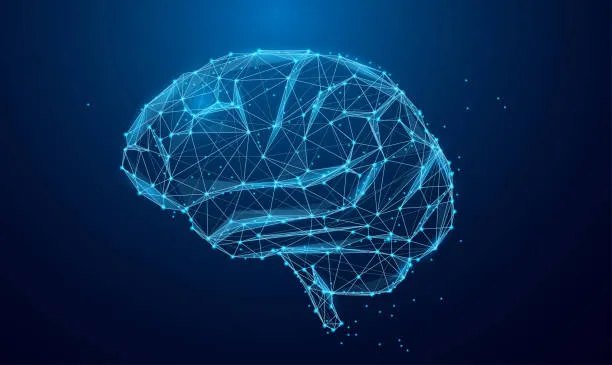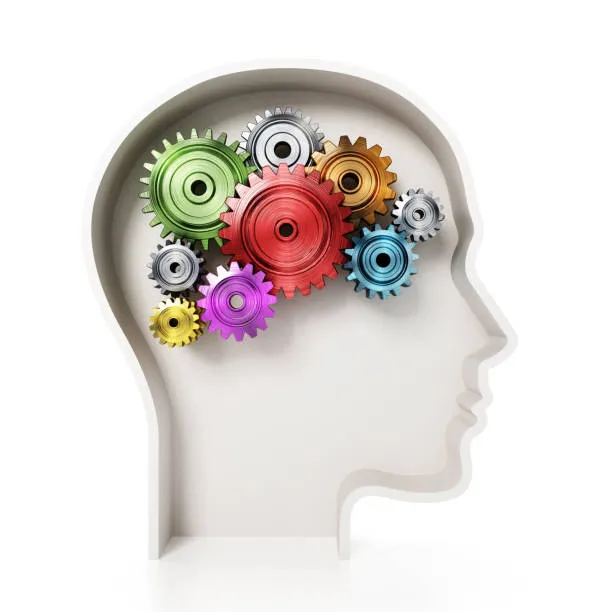Imagine if you could remember everything. Every single detail of every conversation, meeting, or experience. You would never need to take notes again! While this may sound like a far-fetched dream, some experts believe that it might be possible for humans to achieve 100% recall ability.
At first, this may seem like an impossible feat. But if you take a closer look at the way our brains work, you'll see that there is actually potential for humans to remember virtually everything we experience.
Let's dive into the cognitive powers of humans and discuss the possibility of achieving 100% recall ability.
Exploring the Theory of Human Memory
Can you remember everything you've ever read, seen or heard? According to some researchers, the answer is yes. This theory is known as the 100% recall ability, and it's a concept that is still being explored.
So far, there hasn't been any definitive proof that humans can remember everything. However, there is some evidence that suggests we have the potential to do so. One study showed that people were able to recall 95% of the words they read in a text. Another study found that people could remember 95% of the images they saw in a slideshow.
There are a number of factors that contribute to our ability to remember information. The most important one is repetition. The more we see, hear or read something, the more likely we are to remember it. That's why flashcards are so effective for memorizing vocabulary words or foreign phrases.
Another important factor is context. If we can relate the information we're trying to remember to something else we know, it becomes easier to recall. For instance, if I asked you to recite the alphabet, you would be able to do so without much difficulty because you know what each letter sounds like and what it represents. But if I asked you to recite the alphabet backwards, it would be more difficult because you wouldn't have that contextual reference point.
So far, there isn't any evidence that suggests humans can remember 100% of everything we see, hear or read. However, as technology continues to evolve and our understanding of the human brain increases, there's a chance that this theory could be proven true in the future.
The Current Understanding of Human Memory
Right now, scientists believe that human beings can only remember about 7 bits of information at any given time. This theory is called the '7 plus or minus 2' rule, and it's based on the idea that we can only keep track of a limited amount of information in our conscious minds.
This theory has been tested and proven time and again in laboratory settings. However, there is some anecdotal evidence that suggests that humans may be capable of recalling more information than this. For example, some people have claimed to remember every word from a book they read, or every detail from a conversation they had.
So far, there is no scientific evidence to back up these claims. However, if it is possible for humans to recall more information than we currently believe, it would open up new possibilities for understanding and harnessing the power of the human mind.
Different Types of Memory Retention
When it comes to memory retention, humans have three different types of memory recall at their disposal: sensory, short-term and long-term.
Sensory memory is what we use to take in all the sights, smells, sounds and tastes that we experience on a daily basis. It's the first step in the memory-making process, and the information collected here is usually gone within seconds or minutes. This is why it's so important to pay attention when you're reading or listening to someone—you want to make sure that the information registers in your sensory memory so you can recall it later.
Short-term memory is what we use for everyday tasks like remembering a phone number or where we left our keys. It holds information for about 20 minutes before it's forgotten. That might seem like a short amount of time, but it's actually plenty of time for us to complete most of our daily tasks.
Long-term memory is what we use for more complicated things like recalling our childhood memories or studying for an exam. This type of memory can hold onto information indefinitely, as long as it's accessed and reviewed on a regular basis.
Enhancing Memory Through Cognitive Techniques
Have you ever wanted to tap into your own superhuman memory? You may think that it's impossible, but if you take the right steps and practice some cognitive techniques, you can enhance your memory and recall ability significantly.
The first key to success is getting organized. Make sure your physical and digital workspace is uncluttered to help minimize distractions, so that it’s easier for you to focus on the task at hand.
Using mental associations or mnemonics is another great way to remember information. Think of a catchy phrase or image related to what you're trying to remember—associating it with something meaningful can help you better retain and recall it later.
You can also use spaced repetition—repeating what you've learned at evenly spread out intervals—to jog your memory and remind yourself of the content. Testing yourself is another good idea if you want to increase your recall ability, as testing yourself encourages proactive learning and helps strengthen memories over time.
Is It Possible to Achieve 100% Recall?
When it comes to tapping into the invisible powers of the human mind, the idea of achieving perfect recall has long been talked about. According to some experts, it’s possible for humans to remember every word we read, hear, see and smell—100% of everything that comes into our senses.
That said, it’s highly unlikely that anyone has ever developed this ability. While certain memory techniques can help you improve your memory recall and retention, research is still limited when it comes to understanding whether we can reach the level of perfect recall.
Even if you do possess a photographic memory and can recall 100% of what you experience in life, there will still be challenges in organizing and processing all that information. If too much is absorbed at once, your brain may become overwhelmed, leading to confusion or even mental fatigue.
At the end of the day, enhancing your cognitive abilities should be an enjoyable journey—not a chore or test. So before attempting to unlock the so-called "powers" of your mind (or anyone else's for that matter), take some time to reflect and figure out what works best for you.
Factors That Affect Recall Ability
When it comes to our recall ability, there are many factors that can affect how well we remember things. Age is one of the major factors, as our memory tends to decline with age. Stress, too, can play a role in how well we remember things, as stress hormones can impair our ability to recall information. Lack of sleep and certain medications can also interfere with recall.
In addition, the environment in which we learn and remember information is important—for example, if you’re in an unfamiliar place or surrounded by noise, your recall may not be as reliable. Finally, if you’re distracted or unfocused when consuming information, your recall will likely suffer.
The takeaway is that if you want to tap into your 100% potential for recall ability, it pays to pay attention to what’s going on around you and create an environment that supports learning and retention.
Conclusion
So, what is the answer? Can humans remember 100% of everything? The answer is yes and no. Yes, humans have the ability to remember 100% of what they read, see, smell and hear. However, no one is able to use this ability 100% of the time. Memory is a cognitive process that we use to store and retrieve information. How much information we remember and the way we remember it is dependent on a number of factors, including the strength of the memory, the amount of information stored in the memory and the way the information is retrieved.
Reference/Resources
https://www.medicalnewstoday.com/articles/319794
https://www.theguardian.com/education/2016/sep/24/do-our-brains-have-extraordinary-untapped-powers
https://www.verywellmind.com/10-percent-of-brain-myth-2794882
https://www.frontiersin.org/articles/10.3389/fpsyg.2013.00433/full
https://www.healthline.com/health/how-much-of-our-brain-do-we-use
https://www.medicalnewstoday.com/articles/321060
https://uplift.love/how-to-use-100-of-your-brain/
https://hub.jhu.edu/2014/07/24/busting-a-brain-myth/
https://thebestbrainpossible.com/how-to-use-100-of-your-brain/
https://www.scientificamerican.com/article/do-people-only-use-10-percent-of-their-brains/





